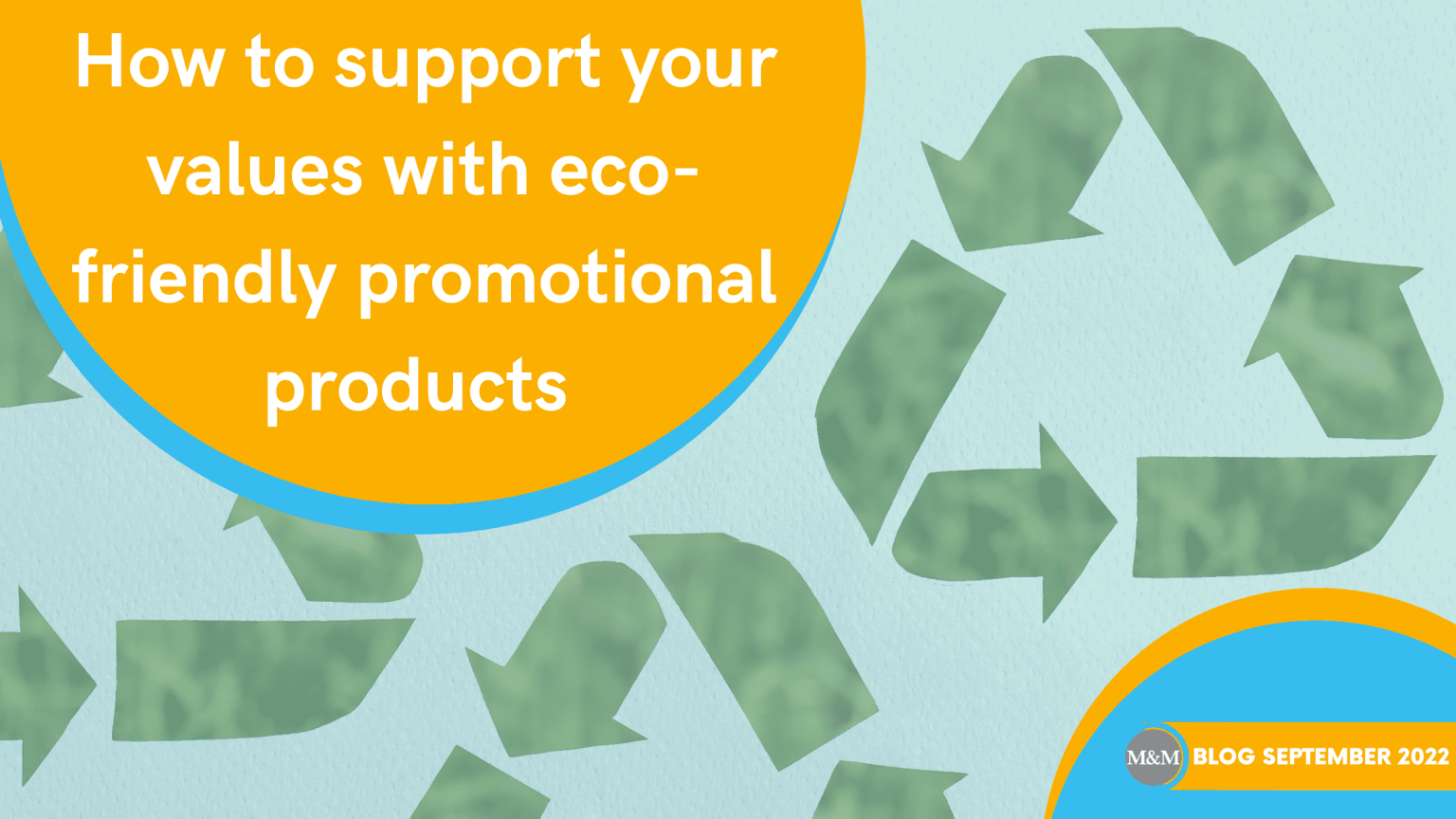When green or eco-friendly promotional products first emerged, customer choices were extremely limited and the price tags were far less friendly (a lot of it didn’t ‘look’ great either).
Fast forward and it’s a very different story. A marked increase in awareness and desire, together with an industry commitment and a healthy dose of innovation, means that the days of compromise are long gone. It’s not hard now to find an eco or sustainable alternative to most items, without having to make concessions on quality or aesthetics, or having to blow your budget.
Alongside this, we have another set of choices – from reusable or recycled to natural products, Fairtrade or ethically produced items, biodegradable, sustainable or carbon neutral merchandise.
Which leads us to the question of what exactly is eco-friendly. The term can be open to interpretation and mean different things to different people; even more so when we consider all the elements of the supply chain, from raw materials and production through to transportation.
Whilst it’s highly unlikely we can always tick every single box yet, in this blog, we look at a few of the options available that can fulfil different elements of the eco-story and align to your individual policies.
UK Made
 During the pandemic and its associated challenges, many of us started to explore our high streets again to buy local goods and support local businesses. Add in current economic challenges and the rising cost of fuel and this combination of factors has influenced the promotional products industry too.
During the pandemic and its associated challenges, many of us started to explore our high streets again to buy local goods and support local businesses. Add in current economic challenges and the rising cost of fuel and this combination of factors has influenced the promotional products industry too.
It’s not difficult to see the benefits of buying British – and that means goods being manufactured in the UK, not just being branded here. 
The first obvious eco plus is the lack of Air Miles, so a big tick for carbon footprint reduction. But that’s just the beginning, and there’s a whole lot more to it. Some suppliers are adopting solar power or using a local workforce and/or local materials (or recycled ones). Others are reducing chemicals, energy or water in production methods or following strict waste management processes and eco certification. All of which can help benefit the business, the buyer and the environment.
(As an aside, domestic goods also tend to offer much shorter lead times, as transportation is significantly quicker.)
A new lease of life for plastic (and other waste materials)
Once the ultimate anti-green, anti-eco nemesis of freebies and many other products, one single use plastic item is now enjoying a new lease of life.
 Rather than being destined for landfill or the ocean, plastic bottles are now being recycled into all manner of new products, through transformation into a material called rPET. In simple terms, clear plastic bottles are taken to a specialist recycling unit, where they are cleaned, shredded into flakes and cleaned again, before being made into pellets and melted down.
Rather than being destined for landfill or the ocean, plastic bottles are now being recycled into all manner of new products, through transformation into a material called rPET. In simple terms, clear plastic bottles are taken to a specialist recycling unit, where they are cleaned, shredded into flakes and cleaned again, before being made into pellets and melted down.
The resultant material can be spun into yarn, ready to use as fabric to make bags or lanyards for example (or even embroidery thread). Alternatively, we are seeing rPET used in all manner of merchandise, from pens to notebook covers.
This same reuse, recycle approach is being applied to other waste materials, such as single use paper cups, coffee grounds, quarry waste, wheat straw or fabric cuttings (you can see more examples in our recent blog) – and this innovation is only set to continue.
Provenance, Fairtrade and other stories
 Reflecting the main trends in eco-merch choice, we are seeing a greater focus on ethically produced products, from Fairtrade principles (where farmers and workers receive fair pay, safe working conditions and workers rights) to eco-systems supporting a circular economy (and sustainability at every stage of the supply chain) and the use of ethically certified factories. And some companies are even offering the ability to track the provenance of your end products.
Reflecting the main trends in eco-merch choice, we are seeing a greater focus on ethically produced products, from Fairtrade principles (where farmers and workers receive fair pay, safe working conditions and workers rights) to eco-systems supporting a circular economy (and sustainability at every stage of the supply chain) and the use of ethically certified factories. And some companies are even offering the ability to track the provenance of your end products.
 One of our suppliers creates bags that use recycled fibres and waste fabric cuttings from garment producers in Bangladesh, which then undergo a mechanical recycling process, without the need for dyes, water or chemicals.
One of our suppliers creates bags that use recycled fibres and waste fabric cuttings from garment producers in Bangladesh, which then undergo a mechanical recycling process, without the need for dyes, water or chemicals.
Then, by embedding tracers into the fibres, the final recipient can follow every step of its sustainable journey.
Another uses block chain technology to trace and validate the genuine use of recycled materials in a range of promotional products, from hats or rucksacks to picnic blankets, drinkware or umbrellas. Not only that, each item details the litres of water saved in the process – and donates a specified percentage of proceeds to a water charity, providing safe water and sanitation.
Choosing merchandise from these sorts of initiatives enables you to actively demonstrate and involve your customers and teams in supporting your CSR goals.
Packaging and instructions

It’s not just promotional products themselves where we are seeing changes. More and more suppliers are focussing on the packaging used for their merchandise with a focus on sustainable, recycled or reusable materials and the BPMA is actively working with the industry to promote this. But rather than just using more eco-friendly materials, packaging can also feature instructions to help recipients reuse and recycle, for example by including household recycling symbols and information. Something else to consider and check (and request) when ordering.
Whilst we have only touched on a few areas, hopefully we have given you some food for thought and shown how the industry is reacting to match the individual values of buyers, their organisations and their customers. More importantly, how even small changes can make a big difference and help us all play our part.
Finally, don’t forget usefulness and relevance when choosing your merchandise as, if you get that right too, you’ve got a gift that someone will keep hold of and use over and over again.




